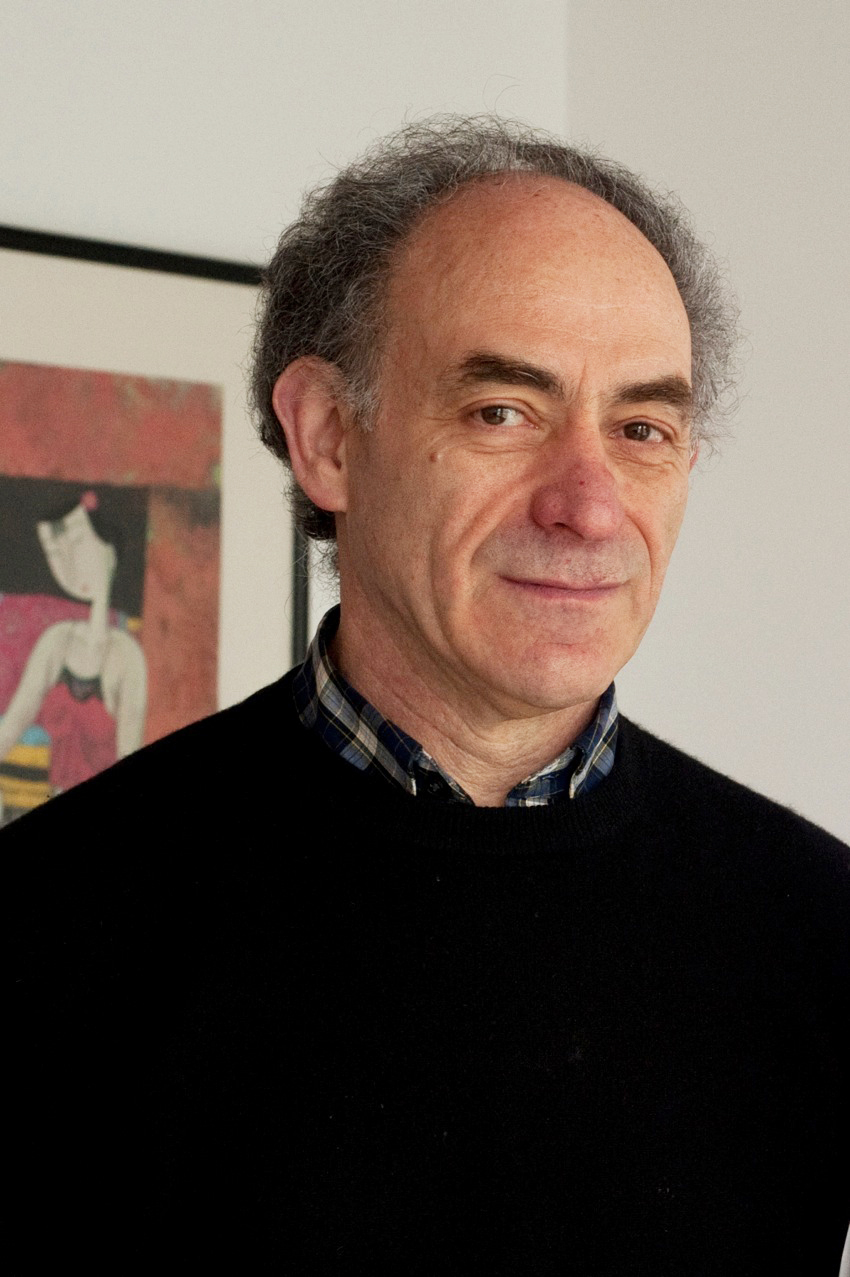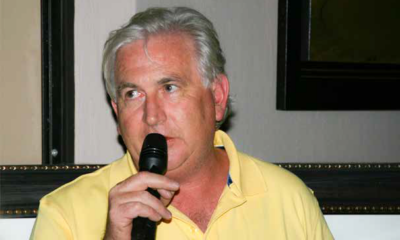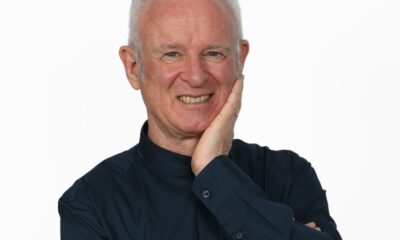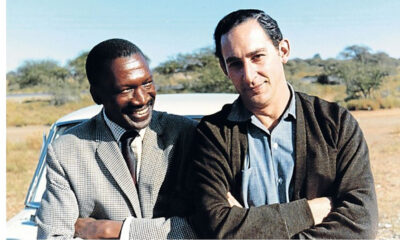
Featured Item

A half-hour Barmitzvah, and a lifetime of memory
Published
1 year agoon
Denis Hirson had one of the most curious Barmitzvahs any Jewish boy could have had. It was probably one of a kind. However, it was writing about this experience that took him deep into his and our fascinating South African past, into the forces that shaped local Jewry, and into his own family’s sacrifice in the face of devastating challenges.
Hirson, who is in South Africa to launch his seventh book titled My Thirty Minute Bar Mitzvah: A Memoir, is the son of the late Baruch Hirson, who was a South African political activist, academic, author, and historian who was jailed for almost a decade in apartheid-era South Africa. This had a profound impact on the lives of his children, including Hirson, who now lives in Paris.
“We called it a Barmitzvah, and didn’t call it a Barmitzvah,” says Hirson, looking back on the event, which he would prefer people to uncover in his book. “I actually don’t know what it was.” His father’s political conviction led to Hirson having a confusing relationship with his Jewish identity.
On the one hand, his father was born Bertram, but changed his name to the very Jewish and Israeli name of Baruch. Hirson’s mother, Yael, who was born in pre-state Israel, also carried a very Biblical and Israeli name. But that was where Judaism essentially began and ended in their home – at least on the surface, Hirson told the SA Jewish Report.
“My father changed his name when he was part of the radical, left-wing Zionist youth movement Hashomer Hatzair,” recalls Hirson. “Later, he was both divorced from his Jewish values and driven by them. Yet, if you asked him, he had trouble making the connection.”
Hirson’s mother is still alive at the age of 96. When she heard the name of the book, she said to Hirson, “You’ve got chutzpah!”
By this, he said, “She meant that we shouldn’t be so upfront about our Jewish identity so as to include it in the title of a book. Were we not taught to disappear into the undergrowth, to camouflage ourselves? So, in a way, this is a ‘coming out’ and acknowledgement of our Jewish identity as a family. It was only later in my 20s in France that I reconstructed my identity, and that was when my Jewishness emerged.”
Hirson’s father was arrested when Hirson was just about to turn 13. He spent six months in solitary confinement and then nine years in jail. “That was until I was 22. It was awful. I became a sort of surrogate mother and father to my much younger siblings. I accumulated so much anger against my father. But how can you be angry with a parent who did this only because he was fighting for the rights of others?
“So, I didn’t express the anger until later. I could write this book only after he passed away. I loved him to the end, and I understood his position.”
The day his father was released in 1973 is etched in Hirson’s mind. Facing a banning order and house arrest, his family were essentially forced to leave South Africa.
“He came walking down the garden path. We made him a great big breakfast that he didn’t eat. We didn’t really know what to say. He spent four days sorting through books. Most of the house was packed up, but the books were his territory. A Special Branch [security police] man was parked outside the gate. Many people wanted to see him [Baruch], but he was allowed to see only one person at a time. He spent hours wandering around the house at night.
“We were taken to the airport by a policeman in uniform. We said goodbye to a few people. We flew to Cape Town, where we all got on the ship to England. In a photograph, you can see my teeth locked together. It wasn’t the moment to express anger. And after all, I had enjoyed 12 years [before prison] with my father, which is more than my siblings had.”
Hirson acknowledges that his father’s life and legacy are a gift, and he feels that he ultimately had a happy childhood. Writing this book came about by chance, as he “pulled on a tiny thread, delving into what happened on my 13th birthday” during a writing workshop.
He says his family’s story “had a lot to do with making me into a writer. As a child, I didn’t have the words for what happened. But I could feel the political environment in my body, even during Sharpeville, [on 21 March 1960, when a protest over pass laws resulted in police opening fire on protesters, killing 69 and injuring 180], and I wasn’t yet nine years old. I’ve learned that with trauma, you can make it an ally, and for me, it has been a fuel for writing.”
Doing a reading at Beit Emmanuel Synagogue in Johannesburg last week, Hirson was moved to see members of his father’s family in the audience, “including my aunt, who was sitting at the Pesach table described in the book”. As his father had been estranged from his parents and brothers, this was a “full-circle” moment.
Soon after arriving in England in his early 20s, Hirson joined a group of South African exiles who became gardeners in the English countryside. “I think we needed to ground ourselves. It was about becoming servants, getting back into our bodies, and being a bit lost.” He later made his way to Paris because “I needed an entire change.”
He worked as an actor for 10 years, and taught science students about creativity, but eventually, he returned to the written word, tilling the land of his own story and buried Jewish identity. In fact, his book of poetry is titled Gardening in the Dark.
And yet, there are things he never managed to unearth again. After his father came out of prison, “We never got him back. I’m not sure he ever really left prison. His life became narrower and narrower. Those nine and a half years structured the rest of his existence,” he says. He believes that open conversations within the South African Jewish community are the only way to really come to terms with the past.
- Hirson will be speaking at various venues in Cape Town and Makhanda (previously Grahamstown) from 11 to 27 March, including the Jewish Literary Festival in Cape Town on 21 March. To find out more, email karen.lane@workingtitle.co.za










